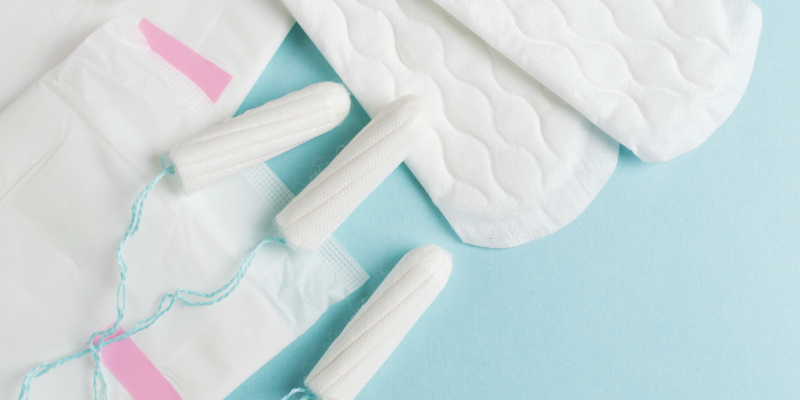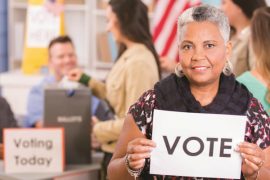By Katy Macek
Edgewood College senior Natasha Sichula still remembers her embarrassment and anxiety when, at 15 years old, she got her period and had to use a sock to absorb the blood.
Not having adequate menstrual supplies affected her confidence in school, says Sichula, who grew up in Mufulira, Zambia. “I wouldn’t talk because I’d be thinking, ‘I hope I’m not bleeding through my uniform.’”
Sichula’s experience isn’t unique. Most girls feel a sense of anxiety as their period begins.
But imagine not being able to pay for products to keep it under control. Any woman living in poverty (13.1 % of the U.S. population, according to the U.S. Census’ 2018-19 Current Population Survey) may be subject to having to choose between buying food or feminine hygiene products.
That choice is being made right here in the Madison area. The local chapter of the international women’s organization Zonta Club realized there is a deep need for period products after it queried 30 local organizations and school districts and learned that some girls even skip school during their periods because they can’t afford feminine hygiene products.
Michele Volsberg, chair of Zonta’s communications committee, says that prompted Zonta to act.
“People were quite outraged by the fact that in 2019 girls are missing a week of school because they don’t have period products,” Volsberg says.
“Bring the Basics. Period.” is Zonta’s yearlong campaign to put donated feminine hygiene products in schools and local agencies. It kicks off with a period product drive at the Madison Women’s Weekend, sponsored by BRAVA Magazine, Nov. 23-24 at Alliant Energy Center.
The campaign will team up with 100 Zonta Champions—100 people who pledge to each collect 100 period products.
“This is not a choice; women have to have their period,” Volsberg says. “It’s very difficult to go to work or school if you don’t have the supplies when you have your period. They can’t be their best selves and do their best work.”
It’s a start to end menstrual inequity. Elsewhere in the community, other young women are getting involved.
Sichula remembers her first period experience so vividly, she says, that it spurred her to start a movement. At Edgewood College, she founded Her Empowerment Race Zone, a movement to eradicate period poverty around the world. She originally pitched HERZ during a college competition, which she won and received $1,000 to put toward her endeavor.
With that money, she bought sewing machines in her home country for girls to sew their own reusable sanitary pads, and she’s teaching female students at Edgewood to do the same.
In the Madison Metropolitan School District, James Madison Memorial High School junior Maggie Di Sanza is working with the administration to provide free sanitary products in all women’s restrooms at the schools. She so far has them in every bathroom at Memorial High School.
Through her blog “Bleed Shamelessly,” which started as a school project, Di Sanza has formed a community of students and experts who are working to provide education on menstrual health, access to feminine hygiene products and to promote conversations about periods.
They currently are working on a letter-writing campaign to area businesses to ask them to stock their bathrooms with sanitary products.
Volsberg hopes all their efforts have a longstanding effect.
“I hope there is no woman or girl who is held back from work or school or any other opportunity because they are sitting home due to lack of basic products,” she says.
That’s how it should be. Period.




Comments are closed.